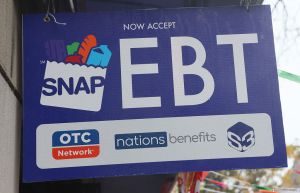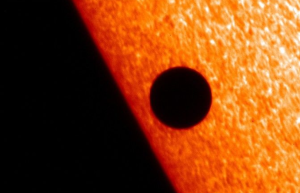Chinese students were banned from attending the Kepler Conference Ames Center. NASA Chief Charlie Bolden blames it on the miscommunication caused by anti-Chinese law being gravely misinterpreted.
An email citing the R-Va law started the problem which received criticisms from the Chinese government, the scientific community and even the law's author. The employee who sent it worked for the Ames Research Center.
The R-Va law, authored by Representative Frank Wolf, prohibits Chinese nationals from being hosted in the Ames Research Center and NASA. The law was written to prevent any illegal access to American technology and more importantly breaches in national security.
"The email from NASA Ames mischaracterizes the law and is inaccurate," said Representative Wolf to Fox News. The law "places no restrictions on activities involving individual Chinese nationals unless those nationals are acting as official representatives of the Chinese government.” Wolf believed however that Congress has its reasons for taking measures against the Chinese "cyber attacks, espionage campaigns and development of space weapons to use against the U.S."
A Chinese post-doctoral student at Yale University was among those who were declined to attend the conference. Ji Wang was supposed to present about the non-operational Kepler spacecraft.
Hua Chunying, China's foreign ministry spokeswoman said the restriction was undoubtedly "discriminatory" and that researches that are purely academic and scientific "should not be politicized."
Bolden put the blame on a mid-level management decision which acted out of concern to prevent any breach in NASA confidential information and security. He said in an email to NASA, "In performing the due diligence they believed appropriate following a period of significant concern and scrutiny from Congress about our foreign access to NASA facilities, meetings and websites, [they] acted without consulting NASA HQ."
NASA management is now reviewing the declined applications and is planning to get in touch with the Chinese scientists to urge them to reapply.
The Kepler Conference organizing committee wrote a fervent letter saying, "We find the consequences of this law deplorable and strongly object to banning our Chinese colleagues, or colleagues from any nation, from participation in KSC2 at NASA/Ames. Had we been aware of this possibility at the onset of planning KSC2, alternate venues to NASA/Ames would have been pursued."
Although NASA's chief admitted the mistake, Kepler Science co-chair Alan P. Boss said that an overturned decision won't correct the damage.
Boss explained that to override the decision, the approval must be encoded in the NASA headquarters which is currently impossible due to the government shutdown."The ability of scientists to attend an open scientific meeting about the spectacular results produced by NASA's Kepler Space Telescope is another likely fatality of the failure of the U.S. Congress to enact a federal budget for FY2014."
© 2025 HNGN, All rights reserved. Do not reproduce without permission.








